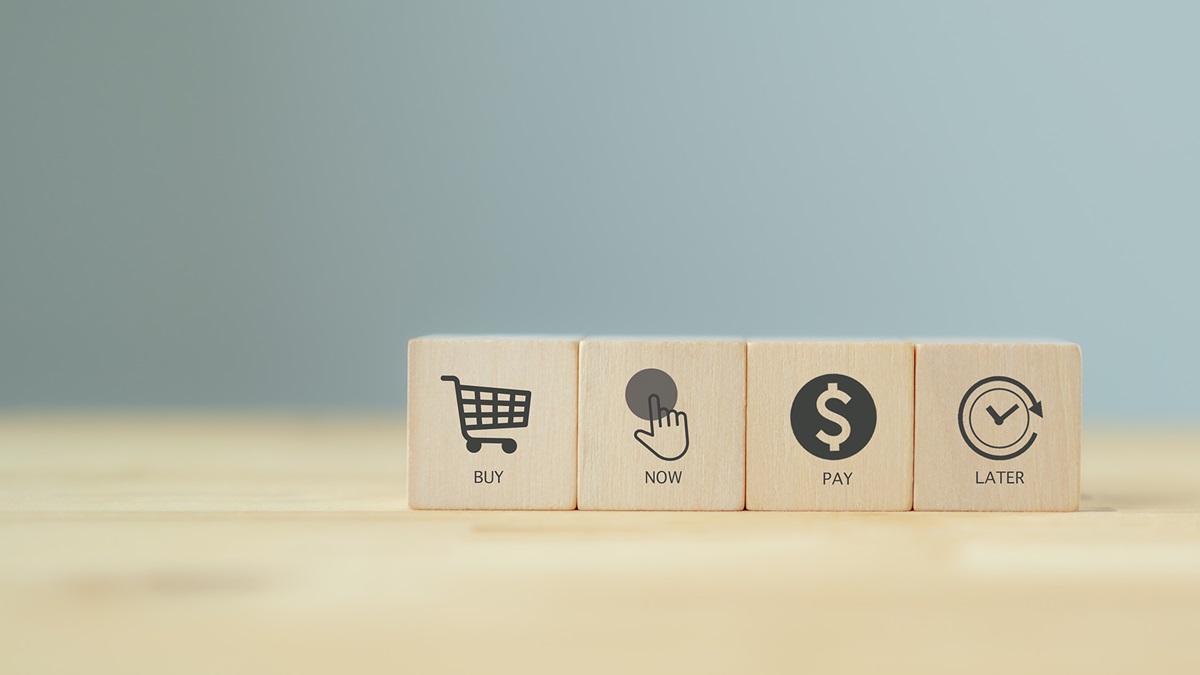Neil Pein, Head of Payments Transformation at BNP Paribas, talks about “Buy Now, Pay Later” and other important innovations in the payments space.


Neil Pein
Head of Payments Transformation

The ‘Buy Now, Pay Later’ (BNPL) payment solution has been booming across the world. BNPL is a kind of short-term financing that allows customers to spread the cost of their purchases over instalments – and because it’s integrated into the retailer’s sales process, it’s all possible at the click of a button.
BNPL is not just something consumers are becoming increasingly familiar with, but something they have begun to expect as standard from online retailers.
“BNPL is not just a new means of payment,” says Neil Pein. “It’s a must-have – for a distributor, for a retailer. And it’s a way to create customer loyalty. We still believe that the BNPL solution has big growth ahead of it.”
BNP Paribas recently acquired FLOA, the fintech behind the number one BNPL solution in France. FLOA also operates in Spain, Belgium, Italy and Portugal.
The goal is to expand FLOA’s reach across the rest of Europe – and to develop new solutions using its existing technology.
“What we’re also developing right now is this kind of instant loan,” says Pein. “It’s using the same technology as BNPL, but instead of paying the funds to the merchant, we provide a short loan to our individual retail clients. It’s almost the same customer experience, which is smooth, easy and quick.”
BNP Paribas have begun rolling out this new offering in France, in partnership with digital bank Lydia and it is also now available through the BNPP app MesComptes in France.
There’s no doubt that things have changed a lot in the e-commerce world over the past few years. First there was the impact of the coronavirus pandemic, and now retailers and customers are adapting to the gradual return to normal.
“2020 and 2021 were the e-commerce boom years,” Pein says. “2022 is different – it’s back to the physical world. People have been showing a lot of willingness to go back to shops, to go back to the physical stores.”
Pein believes physical retailers need to take notes from their online counterparts in order to reinvent themselves for the current environment.
“We’re also developing a ‘Buy Now, Pay Later’ solution for in-store shopping,” he says. “This is a new trend that we’ve been seeing over the last few months. This is one way to reinvent and provide additional services at the point of sales.”
Another innovative BNP Paribas solution to watch out for is Lyf Pay, an all-in-one mobile payment app that uses QR codes.
As a result of the pandemic, it’s not unusual to find QR codes in restaurants – but they are often only used to access the menu. Lyf Pay allows customers to pay for their meal, whether that’s for the entire table or just what they’ve ordered – and even add a tip – just by scanning the QR code on their table.
Pein contrasts this to the traditional restaurant experience once the meal is finished: catching the waiter’s attention, asking for the bill, waiting for the bill, asking to pay by credit card, and then waiting for the card machine.
“The customer experience is better,” Pein says. “It’s also better for the restaurant, because they can improve the rotation of their tables. And it’s also better for the waiter. He can focus on his added value – advising on which wine goes with the special of the day, and this kind of stuff. Not going back and forth to the till. It really is a win-win situation.”
Pein explains the BNP Paribas mindset when it comes to innovation. They are very much a part of the fintech ecosystem.
“First of all, we have a strategy to accompany fintechs in their growth,” Pein says. “This is one area of connecting with them and as we are the bank of many fintechs, it’s also a very good way to understand what they can provide.”
BNP Paribas has different ways it can leverage its large footprint in this space to help its customers.
“We are very close to our clients,” he says. “We have a very good idea of what their needs are. Whenever we think we don’t have the product, and it’s a niche one, and we know a good fintech – then we will refer this fintech to our clients.”
But if the bank realises it’s not such a niche product after all, it might look to partner with that fintech and create a BNP Paribas specific product.
And then the final potential step in this process is taking a participation stake in the fintech – or perhaps even 100% of it, as they did with FLOA.
BNP Paribas is also co-creating with fintechs. An example Pein gives is Instanea, an instant payment initiation solution. The bank built Instanea with a UK-based fintech called Token, who specialise in building connectivity through APIs for payment initiation.
Instanea is a payment button that can be put on retailers’ websites, allowing bank transfers from the customer’s account to the merchant’s account. It makes use of the API that banks have been building over the last few years, in response to the requirements of the EU law PSD 2.
“Merchants wanted this kind of payment,” Pein says. “Because it’s a bank transfer, you don’t have some of the issues of debit cards, such as the card threshold. It’s very convenient when you want to pay high basket amounts. Merchants wanted to do it and so we built it. We built it in the BNP Paribas way, so that the merchants are comfortable with the solution.”
Pein concludes that BNP Paribas takes a holistic approach to payment solutions. For us, the payer and payee are two sides of the same coin. By developing solutions that help consumers, their corporate clients will naturally benefit too.
On that front, BNP Paribas has launched a new cashback scheme in France called ‘Mes Extras’, where customers get money back for using their BNP Paribas card to purchase from partner organisations.
Of course, BNP Paribas is also helping its corporate clients directly.
“When PSD 2 came into force,” Pein says. “We spoke to the merchants and explained to them how this will happen, what will be the consequences, how they will need to change – and how we can help them.”
This is what BNP Paribas has been doing.